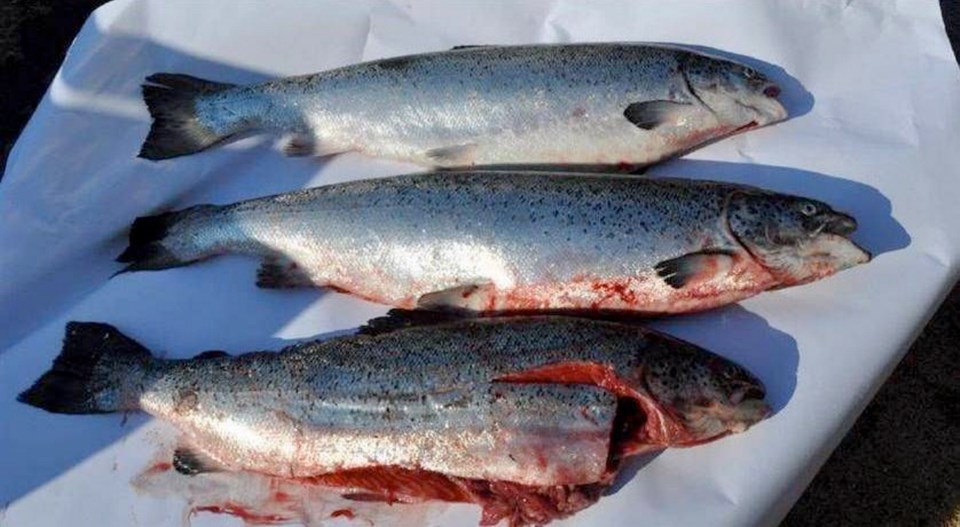Atlantic salmon believed to have escaped from a collapsed fish farm in Washington state have been found in B.C. waters.
The shíshálh Nation said its fishermen caught three Atlantic salmon in the Sabine Channel near Sechelt on Monday — a discovery that’s prompting alarm bells for the Sechelt band.
“While these Atlantic salmon likely came from south of the border, it must be recognized that invasive species do not recognize borders,” said shíshálh Chief Warren Paull in a statement. “Now the question is not if, but when, these species are going to gain access to our streams.”
The fish — two females and one male — weigh about seven to 10 pounds each. A necropsy was performed and found the female fish had developing eggs.
The Sechelt band is concerned about the potential impact of the introduction of the invasive species on local fish population and the marine ecosystem.
It is unclear how many salmon escaped Aug. 19 from the Cooke Aquaculture pens near the San Juan Islands, about 170 kilometres south of where the fish were found by Sechelt fishermen.
The New Brunwick-based company had initially estimated 5,000 fish escaped from its pens, which can hold about 305,000 fish.
But on Monday, the Lummi Nation in Washington state said they have caught about 20,000 Atlantic Salmon since Aug. 24, when the Lummi issued a state of emergency over the salmon spill.
The shíshálh Nation said it has contacted Fisheries and Oceans Canada Monday about its discovery and is concerned about what it said was the federal agency’s lack of urgency to determine the extent of the spread of the escaped fish in Canadian waters.
Fisheries and Oceans Canada did not immediately return a Postmedia request for an interview on Tuesday.
The federal agency issued a statement on Monday saying it is monitoring the situation and is working with its U.S. counterpart to help ensure the impact from the incident is minimized.



